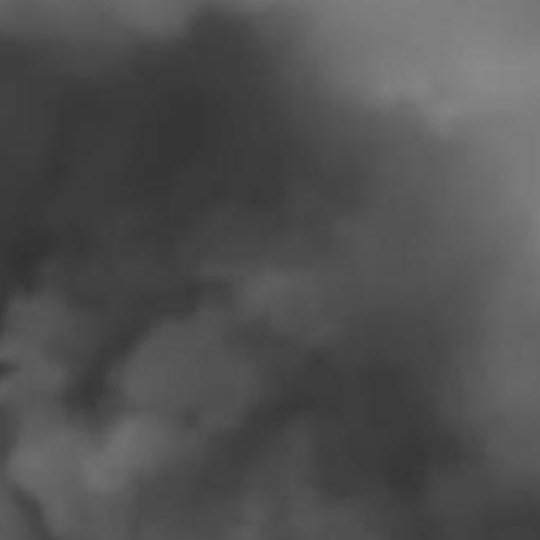Life in the Heart of Death: A Series on the Experiences of Mental Health Professionals under Attack – Story 10
This is the 22nd day of war. I’m used to helping people figure out their emotions and let them be. Today, I don’t know what to do with my own sadness anymore. I stopped counting how many family members and loved ones I lost. How can I do that when I’m trying to alleviate the pain and suffering of my kids, who also lost many of their friends and classmates?!
For me as a mother, death is not the worst part in this story. The worst part are all those images and thoughts that won’t leave the minds of almost everyone in Gaza: will we die instantly when attacked? Will we continue to suffer alone alone under the rubble for many hours or maybe days? Will we feel too much pain while dying? Will we die together? Will one or more of the youngest kids live without the rest of the family? Then where and how? Will our bodies turn into pieces? Will we feel the pain of losing a limb?
My kids ask me questions, and I try to answer in a language they can understand. How can I talk about death, that’s all around, in an age-appropriate way? How do I tell my kids to prepare for scenarios like surviving without the rest of us or being severely disabled, or both?
Dana, my 11-year-old daughter said: “Mum, if it happens that I die and you all survive, please all of you imagine as if I’m in front of you and talk to me everyday.”
“Why?” I asked.
She was sobbing as she answered: “because I’ll miss you there.”
Eman Abu Shawish – Mental Health Practitioner at UPA, Gaza, Palestine
2 November 2023
To read all stories in the series: http://upaconnect.org/category/gaza2023
لقراءة السلسلة كاملة، تفقد الرابط أعلاه
حياة من قلب الموت: سلسلة عن تجارب اخصائيين نفسيين تحت القصف – القصة العاشرة
هذا هو اليوم ٢٢ من الحرب. لقد اعتدت على مساعدة الاخرين في فهم مشاعرهم والتعامل معها. اليوم، لا ادري ماذا افعل بحزني. توقفت عن عد عدد افراد عائلتي واحبائي الذين فقدتهم. وكيف يمكنني فعل ذلك وانا احاول ان اخفف الالم والاسى عن اولادي الذين خسرو الكثير من اصدقائهم وزملائهم؟!
بالنسبة لي كأم، الموت ليس الجزء الاسوأ في هذه القصة. الجزء الأسوأ هو كل هذه الصور والافكار التي لا تفارق أذهان معظم الناس في غزة: هل سنموت فورًا حين نُهاجم؟ هل سنبقى نتعذب وحدنا تحت الركام لساعات وربما ايام؟ هل سنتالم خلال الموت؟ هل سنموت سويا؟ هل سينجو اي من الاولاد الصغار وييعشون دون باقي أفراد الأسرة؟ اذن أين وكيف؟ هل ستتحول اجسادنا الى قطع صغيرة؟ هل سنشعر بالم خسارة الاطراف؟
يسألونني أولادي، فأحاول الإجابة بما يتناسب واعمارهم. كيف يمكنني التحدث عن الموت، وهو المنتشر في كل مكان حوالينا، بطريقة تتناسب مع اعمارهم؟ كيف أخبر أولادي أن يتحضرو لاحتمالات كالعيش دون بقيتنا او مع اعاقة مستديمة او الاثنان؟
ابنتي دانة، البالغة من العمر ١١ سنة، قالت لي: “ماما، اذا صار ومتت وانتو ضليتو عايشين، الله يخليكم ضلكم تخيلوني كاني بوجهكم وتحدثو معي كل يوم.”
.”ليش؟” سالتها
ردت علي وهي تشهق بالبكاء: “على شان رح اشتاق لكم هناك”.
ايمان ابو شاويش
أخصائية نفسية في مؤسسة النداء الفلسطيني الموحد (UPA) – غزة، فلسطين
٢ تشرين الثاني ٢٠٢٣
About Mental Health Professionals Under Attack
Dr. Dinah Ayna, a clinical psychologist and mental health consultant and a member of UPA’s International Advisory Board, has been supporting our Healing through Feeling team in Gaza since 2018 and continues to support those she can reach throughout this war. Two weeks into the recent aggression against Gaza, Dr. Ayna agreed with different mental health professionals inside and outside UPA on the importance of sharing their stories with the world. The professionals wrote their experiences in Arabic, and Dr. Ayna then edited, translated, and sent the stories back for final approval from the original authors before sharing. Authors also sent pictures that were edited to protect their identities and published, with approval, along with the stories. Nicknames were given to those who did not want to be identified.

